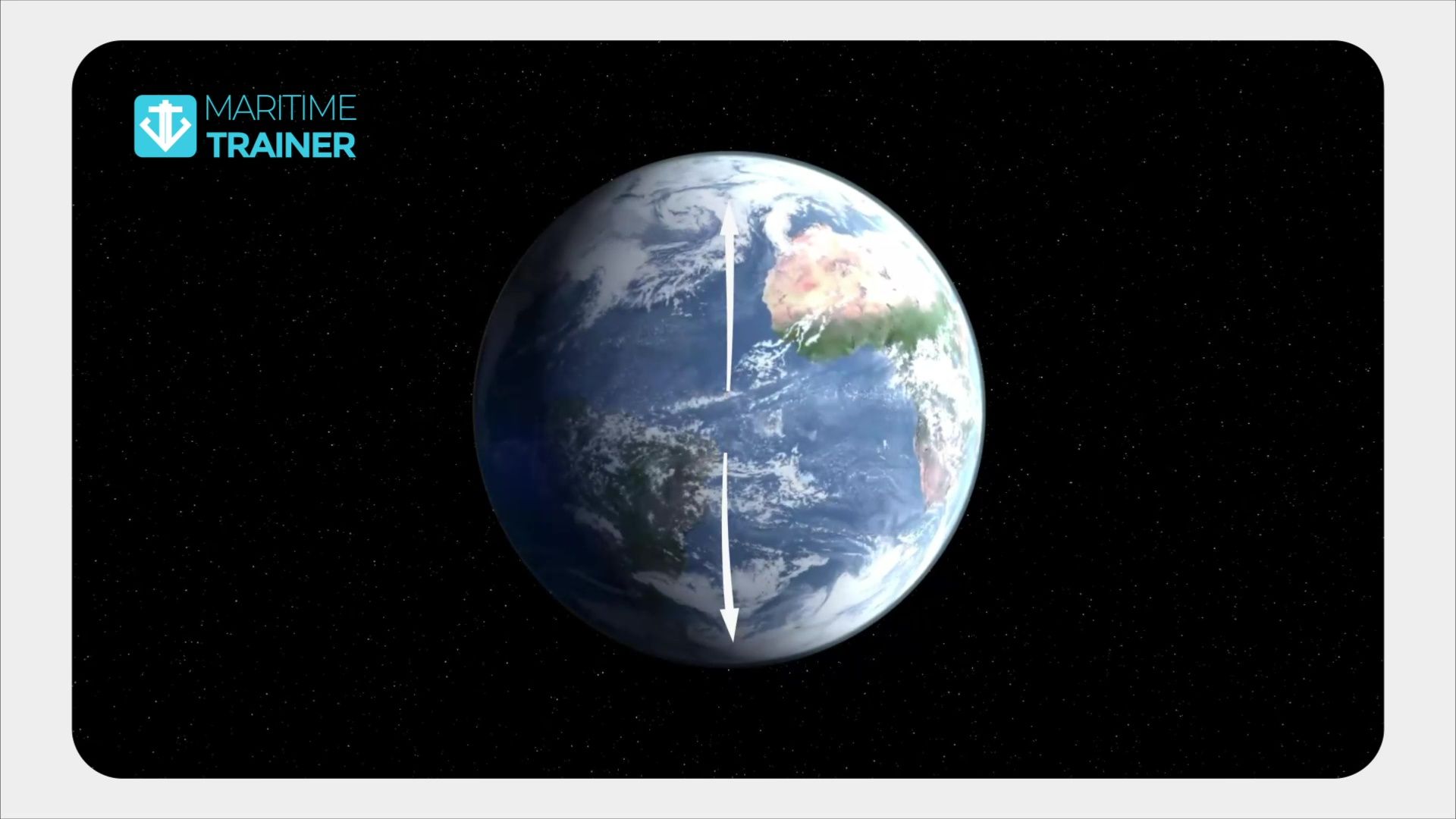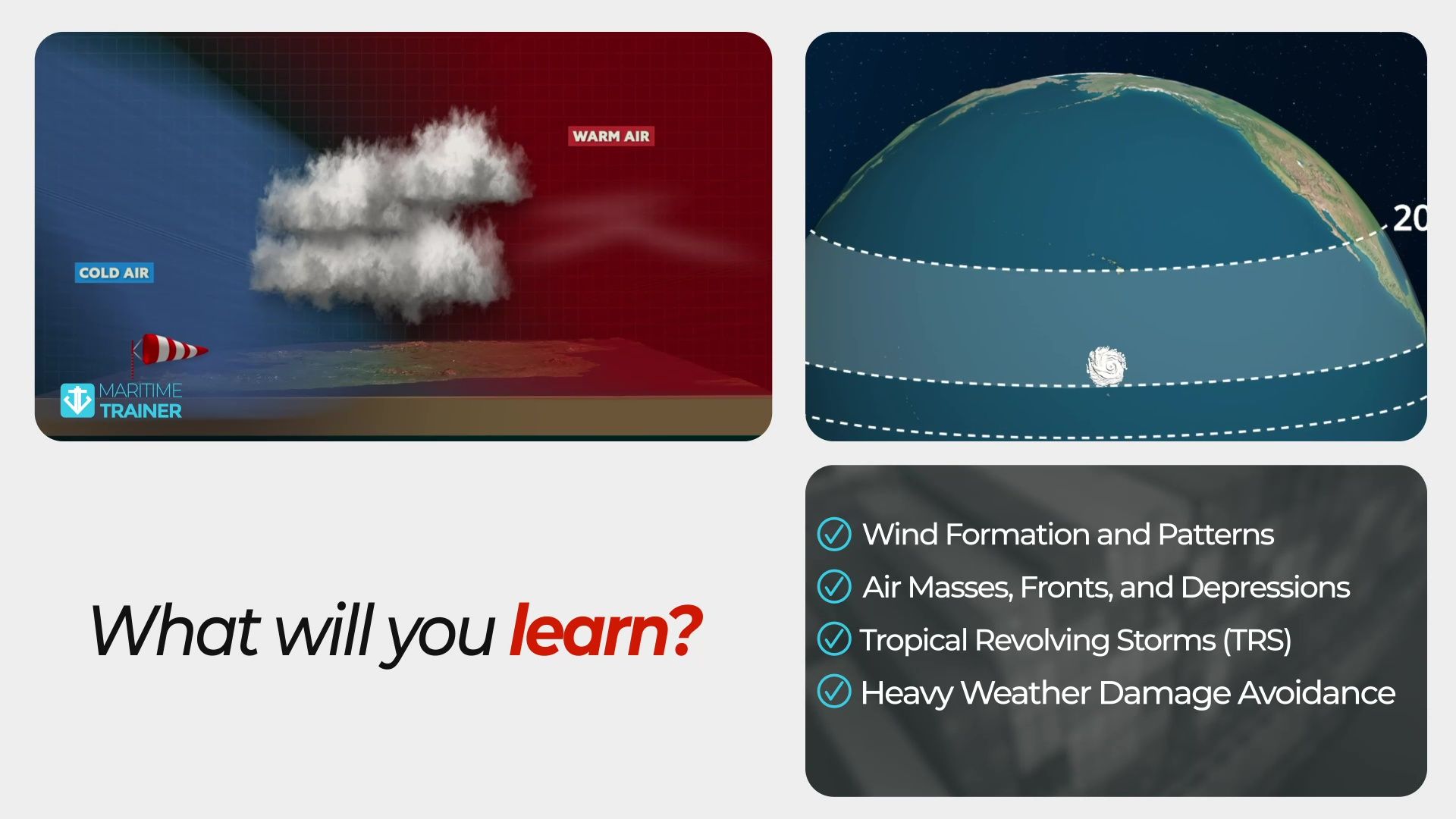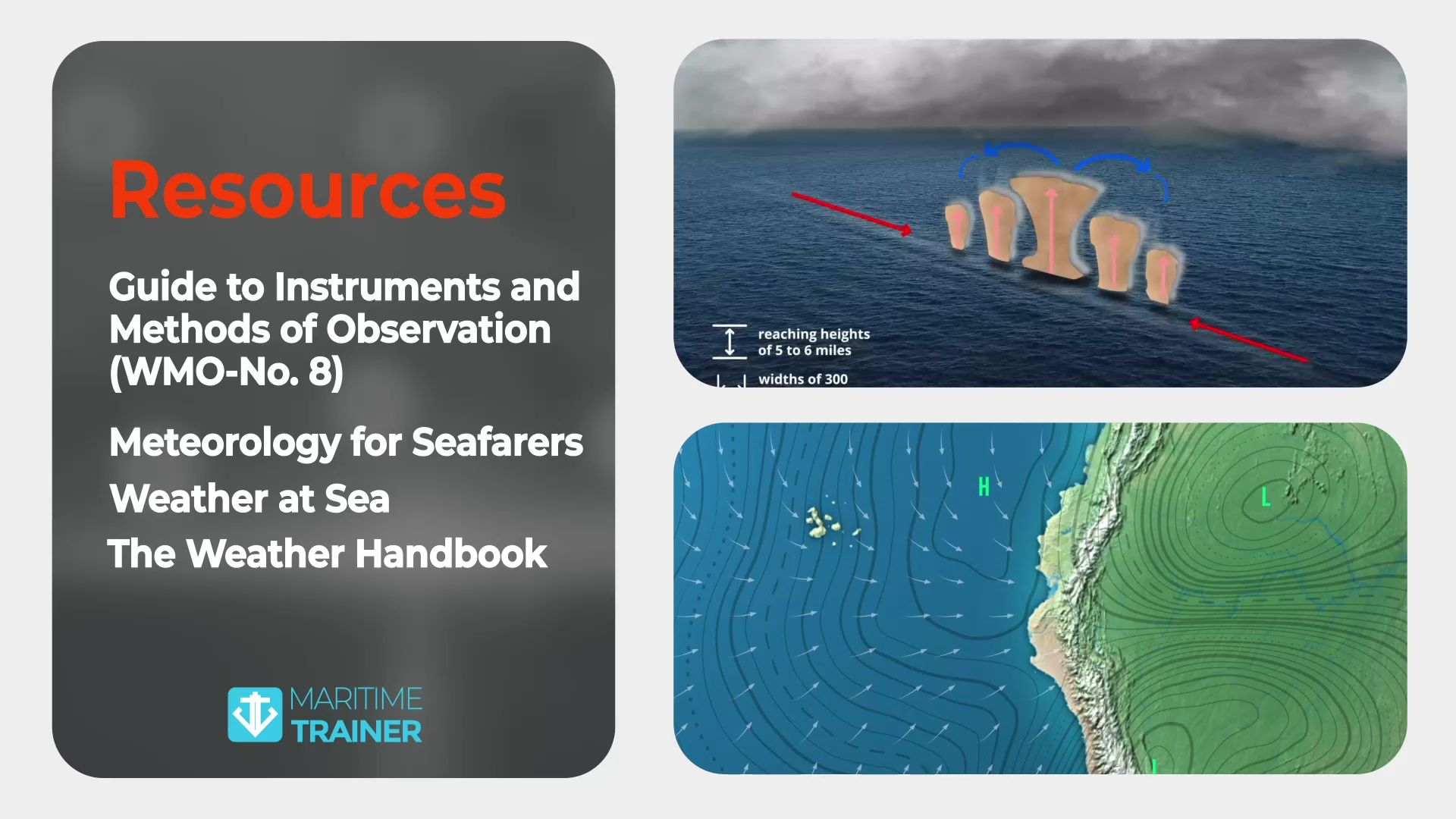Understanding Meteorology: A Critical Skill for Safe Maritime Navigation
Weather has always been a critical factor in maritime operations. From ancient sailors using stars and winds to modern captains relying on advanced meteorological tools, understanding weather patterns is essential for safe navigation. However, with climate change increasing the frequency and intensity of extreme weather events, seafarers now face even greater challenges.
The Role of Meteorology in Maritime Operations


1. Predicting Weather Hazards
Storms, hurricanes, and rough seas can pose significant risks to vessels, crew, and cargo. Accurate weather forecasting allows seafarers to anticipate these hazards, adjust their routes, and ensure the safety of their voyages.
2. Enhancing Voyage Efficiency
Understanding meteorology helps crews plan optimal routes, saving time and fuel. By avoiding adverse weather conditions, ships can minimize delays and operational costs.
3. Protecting Crew and Cargo
Adverse weather is one of the leading causes of accidents at sea. From capsizing to cargo loss, understanding and preparing for weather risks is essential for protecting lives and assets.
Key Meteorological Concepts Every Seafarer Should Know
1. Global Weather Patterns
Weather systems such as trade winds, jet streams, and ocean currents significantly impact maritime navigation. Recognizing these patterns helps crews anticipate and adapt to changing conditions.
2. Weather Charts and Forecasts
Interpreting synoptic charts, satellite imagery, and forecasts is a critical skill for seafarers. These tools provide valuable information about pressure systems, wind speeds, and precipitation, enabling informed decision-making.
3. Storm Prediction and Avoidance
Knowing how storms form and tracking their movement allows crews to take proactive measures, such as rerouting or seeking shelter.
4. Meteorological Tools and Equipment
Understanding how to use meteorological tools, from barometers and anemometers to advanced satellite systems, is vital for accurate weather monitoring.
The Growing Importance of Meteorology in a Changing Climate
Climate change has amplified the unpredictability of weather patterns, increasing the frequency of extreme events like cyclones, heavy rainfall, and heat waves. For the maritime industry, this means:

- More significant risks during voyages are due to sudden weather changes.
- Increased responsibility to ensure environmental safety during operations.
- A heightened need for advanced meteorological knowledge and tools.
Understanding meteorology is now optional but necessary for modern seafarers.
How the Understanding Meteorology Course Prepares You
Our Understanding Meteorology course is designed to provide maritime professionals with a comprehensive understanding of weather systems and their impact on maritime operations.
What You’ll Learn:
- Global Weather Patterns: The impact of trade winds, jet streams, and monsoons on maritime navigation.
- Interpreting Weather Data: How to read and analyze weather charts, forecasts, and satellite imagery.
- Voyage Planning and Navigation: Using meteorological insights to plan efficient and safe routes.
- Storm Management: Predicting and avoiding severe weather conditions to minimize risks.
- Using Meteorological Tools: Mastering barometers, anemometers, and advanced weather monitoring systems.
Who Should Take This Course?
- Deck Officers and Captains: Responsible for navigation and voyage planning.
- Engineers: Monitoring vessel performance under varying weather conditions.
- Shore-Based Personnel: Supporting vessels with weather-related decision-making.
Whether you’re an experienced seafarer or new to maritime operations, this course equips you with the skills to navigate weather challenges effectively.
Course Details
- Duration: 30 minutes
- Language: English
- Skill Level: Operational
- Assessment: Yes
- Certification: Valid for 5 years
Why Choose Maritime Trainer?
At Maritime Trainer, we pride ourselves on providing industry-leading training solutions that combine expert knowledge with practical applications. Here’s why seafarers trust us:
- Comprehensive Content: Covering both theoretical knowledge and real-world scenarios.
- Global Standards: Aligning with IMO and STCW requirements.
- Flexible Learning: Online modules designed to fit busy maritime schedules.
By choosing Maritime Trainer, you’re not just learning—you’re gaining the confidence to handle any challenge the sea throws your way.
Conclusion
Understanding meteorology is a critical skill for ensuring maritime safety, efficiency, and environmental responsibility. With the Understanding Meteorology course, seafarers gain the knowledge and tools needed to navigate confidently through all weather conditions.
Enroll in this course today to invest in your maritime career and the safety of your vessel. For more information, visit our website or contact us at sales@maritimetrainer.com.

Approved & Certified by Bureau Veritas

We are proud to be member of


